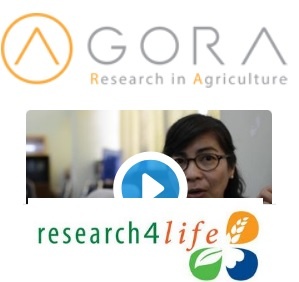Tanzania workshop on Access to Global Online Research in Agriculture (AGORA)


The Food and Agriculture Organization of the United Nations (FAO of the UN) in conjunction with several partners organized a series of training workshops in 2016 and 2017 across Asia, Africa and Latin America focused on access to research in agriculture and fisheries. Earlier, workshops were held in Namibia, Myanmar, Tanzania, Zimbabwe, Laos PDR, Honduras and Guatemala.
The workshops are aimed at drawing attention to the scope of free online agricultural information available on Access to Global Online Research in Agriculture (AGORA) and International System for Agricultural Science and Technology (AGRIS) and in effectively using these resources. Alongside this core focus, the workshops raise awareness of key trends in scientific publishing in agriculture, fisheries and forestry, with a look at the further range of resources available to researchers in agricultural research, and on Research4Life.
The most recent workshop was held at Tanzania Commission for Science and Technology (COSTECH), 26-27 July 2017. In the United Republic of Tanzania, 115 national institutions are registered for free access to scientific journals and e-books through AGORA and Research4Life.
BACKGROUND
Sub-Saharan Africa, as a whole, is facing several major challenges among them climate change, diminishing land and water resources, post-harvest losses, and population growth that are exacerbating the food insecurity situation of millions of people, especially in rural communities. These require innovative solutions and access to open data could contribute to them.
FAO strongly believes that success in agricultural and rural development depends on individual actions of millions of rural family farmers, whose decisions are shaped by the information, knowledge and technologies available to them. Therefore, easy availability and access to agriculture and rural development related data, knowledge and technologies, contributes to enhancing rural livelihoods and food security.
Open data - data that anyone can access, use and share, and Open science – transparency in experimental methodology, observation, and collection of data, coupled with the rapid diffusion of the latest knowledge and broader participation in the discovery of new knowledge - play a key role in this context. Open data is already contributing to agriculture and rural development. It is facilitating information and communication technology based innovations targeting farmers in many countries in Sub-Saharan Africa. It is making it possible to develop applications and services that are helping to keep farmers informed of various issues that affect their work: from pest prevalence and weather predictions to crop growth and market prices.
WORKSHOP: APPROACH
While there are many research resources on AGORA and AGRIS, making effective searches on both platforms requires know-how, and the idea is for the workshop to train researchers to get the best out of the two programmes so that they can share this knowledge back in their institutions.
The workshops provide an overview of both databases, with guidance on searching through the range of free and low-cost research materials and training on some of the new trends and challenges in open science, open access and open data in agriculture.
This was the first workshop where the new Research4Life authentication system was used, and the difference was noticeable. With “one-tap authentication” at http://login.research4life.org, AGORA users will be able to search and browse content from all Research4Life programmes (they are registered to*) - with one easy login.
PARTICIPANTS' FEED-BACK
· I like the practicality of the course, we got to do things hands on and chances are high we will not forget them now even during our training of others.
· The practical sessions were very interesting. I noted that through AGORA I can have access to many subjects such as accounting, management issues just to mention but a few.
· Many questions which helped on practicing while touching many areas. Learned more search programs, e.g. - AGRIS, open access, open data, apart from AGORA.
· I thank you very much for sharing with us this important knowledge. I look forward to meet my users information needs thirsty.
· Open data and open science training - is imperative.
· The shared knowledge, experience and others ideas...have been wonderful to make us awake on our duties.
· Thanks for your time and knowledge you impact to my head.
· AGRIS as a new phenomenon is something I will immediately train my staff and other members of my institution.
Research4Life, AGORA, AGRIS
Research4Life is the collective name for the four programmes – HINARI, AGORA, OARE and ARDI – that provides low-income countries with free or low cost access to academic and professional peer-reviewed content online. The goal of Research4Life is to reduce the knowledge gap between high-income countries and low- and middle-income countries by providing affordable access to critical scientific research.
Set up by the Food and Agriculture Organization (FAO of the UN) together with major publishers, AGORA provides low-income countries with access to an outstanding digital library in the fields of food, agriculture, environmental science and related social sciences, with a collection of up to 8,200 key journals and up to 22,000 books to more than 3,100 institutions in more than 115 countries.
AGRIS is a FAO-maintained global public database providing bibliographic information on agricultural science and technology. Like AGORA its chief goal is to improve access to and the exchange of agricultural information in low-income countries. Over 150 institutions from 65 countries contribute to the AGRIS network and alongside search results AGRIS links to other sources on the web, further enriching knowledge.
ORGANIZERS
FAO organized the workshop in Dar es Salaam, in conjunction with GODAN, AIMS, AGORA and Research4Life.

